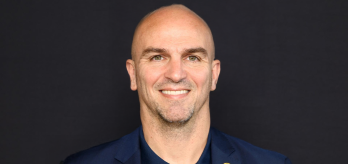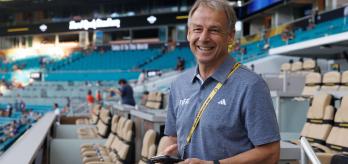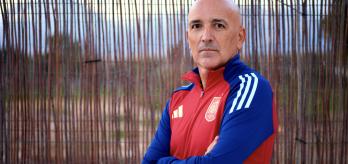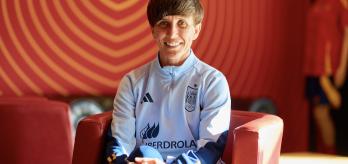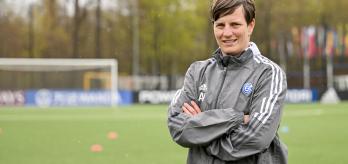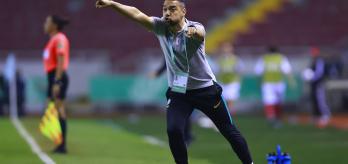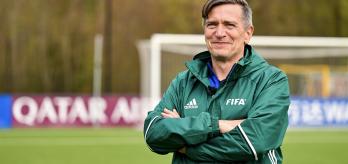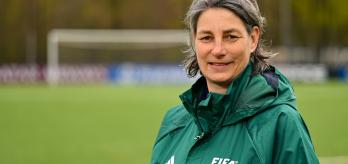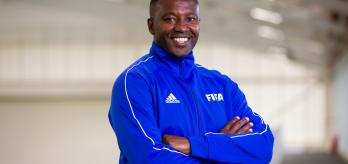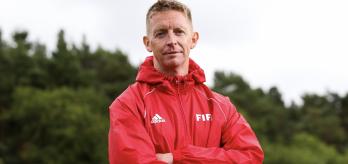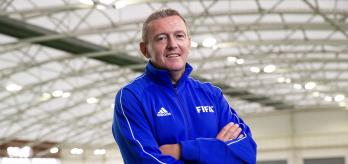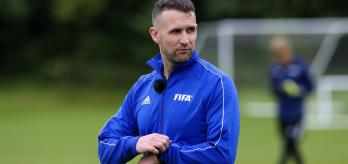Part 1 - Tim's roles and the Goalkeeper DNA
00:05
The different aspects of the Head of England Goalkeeping role
At the time of the interview, Tim held the position of Head of Goalkeeping at the English FA, where he would work together with both the men's and women's national teams. The role's responsibilities included working in coach education and talent identification. Now Tim holds the position of Head of Coaching at the English FA.
00:44
The Goalkeeper DNA
To create the Goalkeeper DNA, Tim pooled together the work from previous coaches across the years and identified 19 characteristics deemed most important for a goalkeeper. These characteristics include the ability to make result-defining saves, the ability to exploit space in possession and nerve strength.
02:26
Tactic as the heart of the Goalkeeper DNA model
The tactic of any given sport influences the other elements of that sport. In football restrictions can spawn tactics. The off-side rule, the size of the penalty area and where a keeper can handle the ball are examples of these restrictions. Tim's Goalkeeper DNA uses the tactics that arise from these restrictions as a basis for developing goalkeepers. For example, the tactic of exploiting space in possession may demand a certain fast-thinking mindset – this mindset would form part of the DNA.
03:28
The goalkeeper as the manager of the game
Goalkeepers need to be able to manage the game. Adapting to specific situations and understanding the direction of the momentum are essential prerequisites for this.
Part 2 - Goalkeeper-coach development
00:08
Core qualities of goalkeeper coaches
There are many core qualities of a goalkeeper coach. Some of these include being studious, being a risk-taker, and designing practices that expose keepers to the different demands of the game. A goalkeeper coach should also be comfortable with modern coaching's various forms; webinars, using video footage, and on the pitch are some of the different ways coaches can help their players.
01:34
Breaking down the licensing levels for goalkeeper coaches
At the time of interviewing, Tim and his colleagues at the English FA were redesigning the entry-level courses. Instead of the previous levels 1 and 2 goalkeeping awards (which have now been retired), aspiring goalkeeper coaches will soon be able to enrol in a goalkeeper coach course linked to the UEFA C License. People who complete this course will simultaneously become licensed coaches and goalkeeper coaches. The goalkeeper coaching lisence pathway will look as follows:
-
UEFA C goalkeeping award (national goalkeeping award): Aim is to help more people feel comfortable coaching goalkeepers at every level.
-
UEFA B goalkeeping award: Focus on practice design.
-
UEFA A goalkeeping award: Focus on applying practice design to the senior level's 11v11 game.
Part 3 - Practice design and tips
00:07
The process behind an effective practice design
Tim believes one of the most important things in practice design is understanding what part of the game the practice comes from. Coaches should understand the specific triggers, cues, and scenarios represented in the game and set up their practices to include them.
01:21
Fundamentals in practice design across all age groups
Practice designs across the different age groups should contain the same fundamental features; a practice should incorporate the event that happens before the save (e.g. positioning), the event that occurs during the save (e.g. the action) and the event that occurs after the save (e.g. distribution). The design of the practice should be in a way that exposes the keeper to the whole series of these events.
02:30
Tips for self-improvement as a goalkeeper coach
For Tim, being curious and open to new ideas are two of the most essential things for goalkeeper coaches. To help keepers improve their understanding of their role in relation to the whole game, their coach should provide them with scenarios where they are in these specific environments. Studying and committing one's ideas to paper is also critical for a goalkeeper coach to cement their knowledge.
We believe the most important thing in practice design is understanding what part of the game it [the practice] comes from














